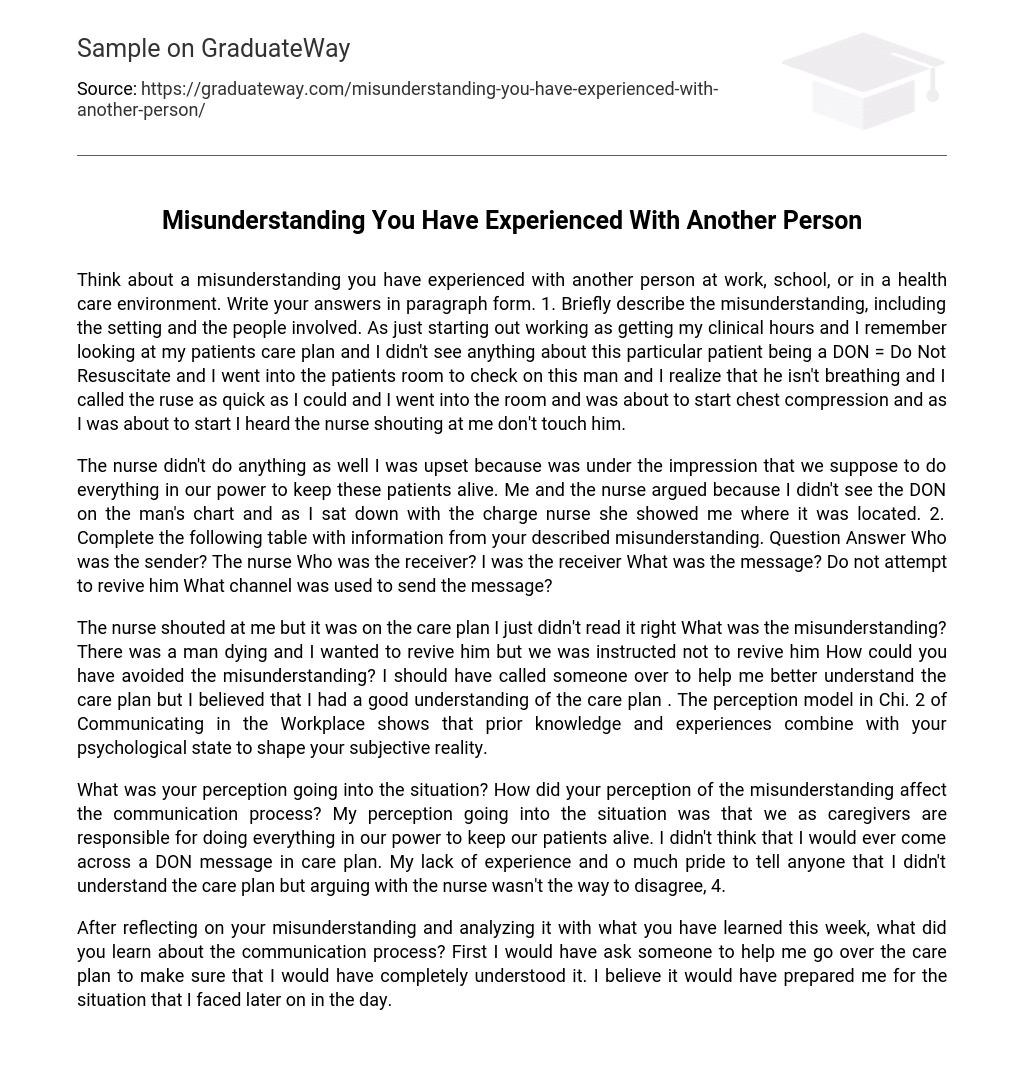During my initial clinical hours in a medical environment, a misunderstanding occurred while examining a patient’s care plan. The individuals involved were myself and the patient. Surprisingly, there was no indication of a Do Not Resuscitate (DNR) status in their care plan.
Later on, upon entering the patient’s room to check on them, I made a distressing discovery – they were not breathing. Swiftly reacting to the situation, I urgently called for assistance and prepared myself to administer chest compressions. However, right before initiating these life-saving measures, a nurse abruptly shouted at me to immediately cease any contact with the patient.
The nurse and I had a disagreement because I believed that we should do everything to keep the patients alive, but the nurse didn’t do anything. I was upset because I didn’t see the DON on the man’s chart, but the charge nurse showed me where it was located.
Here is the information about the misunderstanding:
| Question | Answer |
|---|---|
| Who was the sender? | The nurse |
| Who was the receiver? | I was the receiver |
| What was the message? | Do not attempt to revive him |
| What channel was used to send the message? | [The specific channel used is not mentioned in the text] |
Despite the nurse yelling at me, it was my mistake for not reading the care plan correctly. What led to the misunderstanding? The situation involved a dying man, and I had the intention to resuscitate him, but we were explicitly told not to. How could I have prevented this misunderstanding? I should have sought assistance from someone to clarify the care plan, despite initially thinking I had a clear grasp of it. According to the perception model in Chapter 2 of Communicating in the Workplace, our prior knowledge and experiences, coupled with our psychological state, combine to form our subjective reality.
Before the situation, what was your perception? How did this perception impact the communication process? My initial perception was that it is our duty as caregivers to do everything possible to ensure our patients’ survival. I never anticipated encountering a DON message in a care plan. Due to my inexperience and unwillingness to admit that I didn’t comprehend the care plan, I foolishly argued with the nurse instead of finding a more constructive way to express my disagreement.
After contemplating a misunderstanding and applying the knowledge gained this week, what insights did you gain regarding the communication process? Initially, it would have been beneficial to seek assistance in reviewing the care plan, ensuring comprehensive understanding. This proactive approach could have better prepared me for the situation encountered later in the day.





